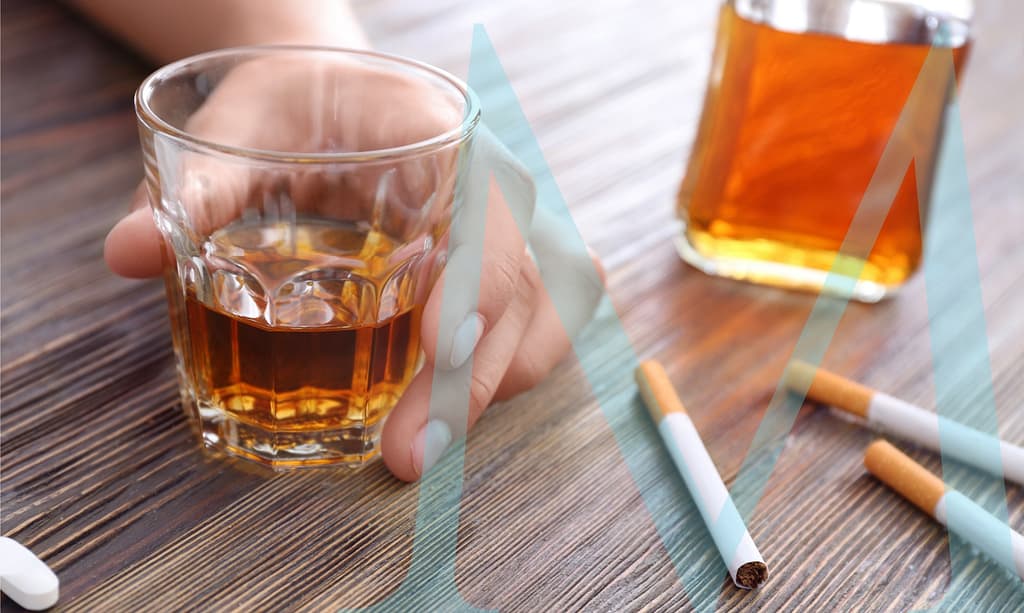Tobacco, Alcohol, and Oral Cancer: How to Reduce Your Risks

When it comes to cancer, you don’t tend to hear much about oral cancer. Of course, we hear all about breast cancer, lung cancer, and skin cancer (don’t forget to wear your sunscreen), but the truth is, you can get cancer in your mouth, too. In fact, according to the American Cancer Society, around 58,450 new cases of oral cavity or oropharyngeal cancer are diagnosed annually, with approximately 12,230 resulting in death. Those aren’t small numbers as far as we’re concerned. Thankfully, there are some things you can do to lessen your risks.
The connection between tobacco and oral cancer.
So, let’s get down to it. We’ve all heard how tobacco products can increase our risks for lung cancer. It’s a harsh reality, but the American Cancer Society indicates that about 80% of lung cancers are due to smoking. It’s also estimated that there will be about 125,070 deaths in 2024 alone, due to lung cancer.
But what about mouth cancer? As it turns out, tobacco products are the biggest contributing factor there, too. And we’re not just talking about smoking. Oral tobacco products, such as dissolvable tobacco, snuff, spit, chew, dip, etc., whatever you prefer to call it, are dangerous habits.
In fact, oral cancer kills about one person per hour. And, if you pick up tobacco usage again after cancer treatment, your chances of developing a second cancer are seriously high. There are so many dangerous chemicals in these products that it really is no wonder that tobacco is linked with such a high rate of disease. Tobacco smoke contains a myriad of chemicals, with over 70 known carcinogens among them.
These cancer-causing agents, termed carcinogens, pose significant health risks. Some of the substances present in tobacco smoke include:
- Nicotine (the addictive component responsible for brain effects)
- Hydrogen cyanide
- Formaldehyde
- Lead
- Arsenic
- Ammonia
- Radioactive elements like polonium-210
- Benzene
- Carbon monoxide
- Tobacco-specific nitrosamines (TSNAs)
- Polycyclic aromatic hydrocarbons (PAHs)
The impact of alcohol on oral cancer risk.
However, the risk of developing oral cancer doesn’t end with just tobacco usage. Alcohol can increase your risks as well. It doesn’t take all that much, either. For those who enjoy moderate drinking, the risks of developing oral cavity (excluding the lips) and pharynx (throat) cancers are 1.8 times higher compared to non-drinkers. Similarly, the risks of larynx (voice box) cancers are 1.4 times higher.
On the other hand, heavy drinkers face significantly higher risks. They have a five-fold increased risk of oral cavity and pharynx cancers and a 2.6-fold increased risk of larynx cancers. It’s worth noting that the Dietary Guidelines for Americans advise moderation, suggesting no more than one drink per day for women or two drinks per day for men.
To be clear, physicians categorize light drinking as 1.2 drinks per day, moderate drinking as 2.2 drinks per day, and heavy drinking as 3.5 drinks per day. Drinking beyond 5.4 drinks per day is considered abusive.
Between tobacco use and alcohol consumption, it’s important to recognize that roughly 80% of oral and pharyngeal cancer cases in men and approximately 65% of cases in women can be linked to these habits.
Reducing your risks of oral cancer.
We really don’t want to be a Debbie Downer, but facts are facts. Tobacco usage and alcohol consumption are a dangerous game when it comes to your mouth. So, what can you do to reduce the risks associated with tobacco and alcohol? Well, the first thing is quitting smoking and being more aware of how much alcohol you are drinking. Awareness is a powerful accessory toward prevention.
But on top of that, visiting your Greensville family dental team every six months for a professional dental cleaning and oral cancer screening is a must. When oral or oropharyngeal cancer is detected early, there’s a significant chance of survival, with a five-year relative survival rate of 86% for all individuals. However, only around 28% of these cancers are diagnosed at this favorable early stage.
Are you overdue for a professional dental cleaning?
To maintain good oral health and to provide a higher chance of early detection of oral cancer (and other oral health concerns), visiting your dentist regularly is a must. Professional dental cleanings and an oral evaluation can help identify issues with your tooth and gum health before they get out of hand.
Similarly, an oral cancer screening can detect potential areas of concern, giving you the time you need to see your doctor and begin treatment if needed. At Monroe Family Dentistry, your overall health is just as important to us as your oral health. By cessation of the use of tobacco products and watching your alcohol intake, you can increase your chances of good overall health.
If you are overdue for a professional dental cleaning, please request an appointment today.